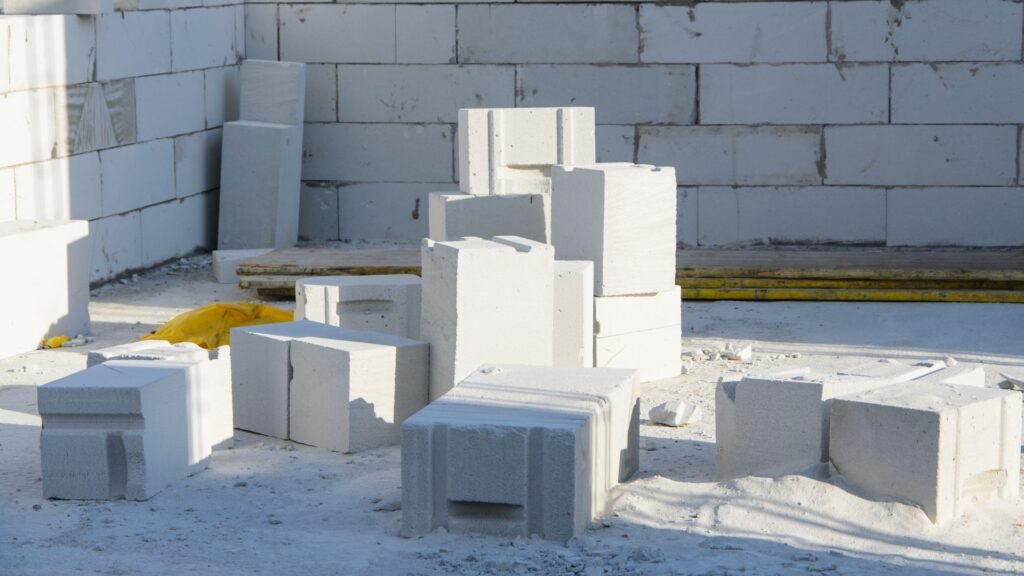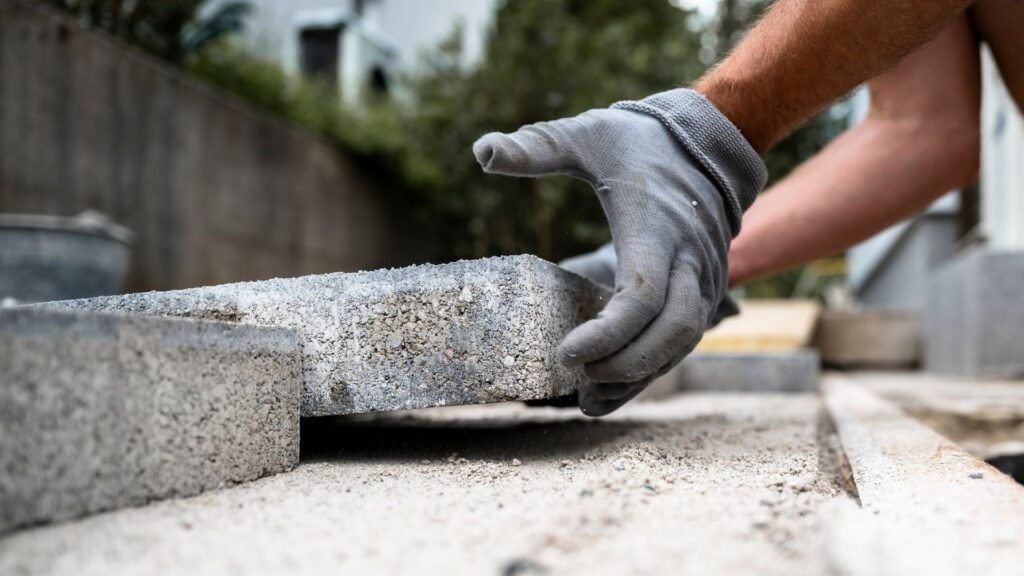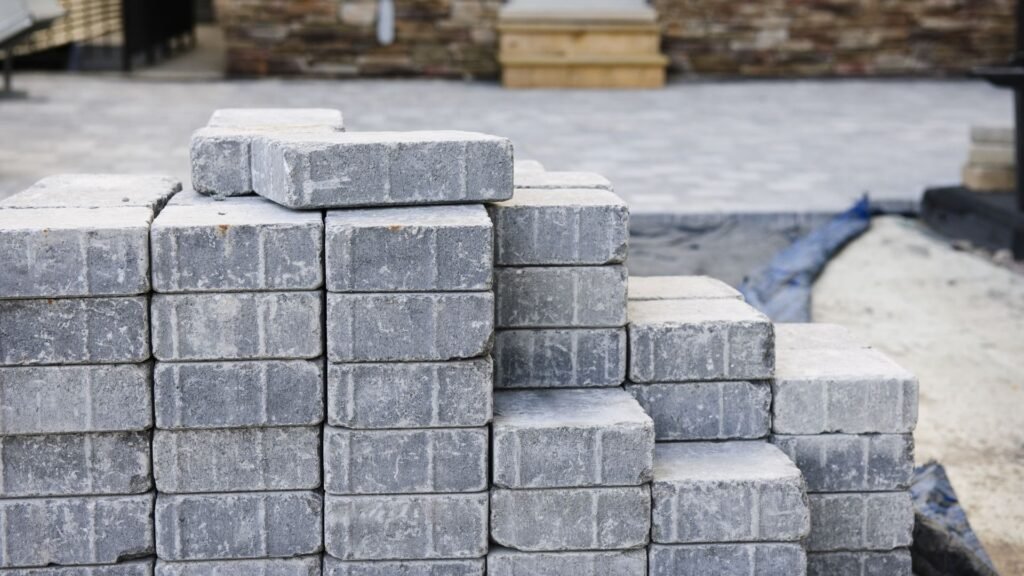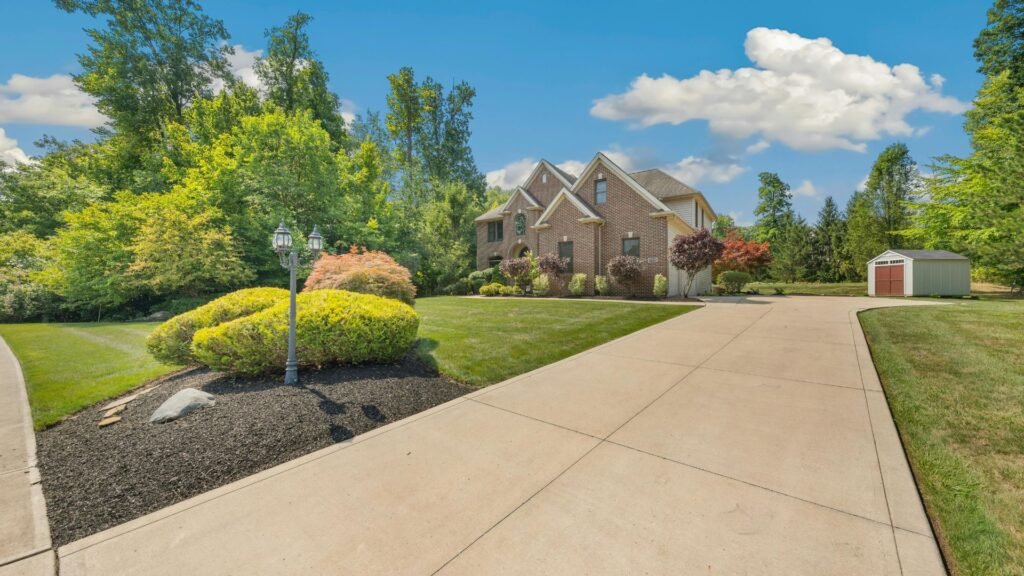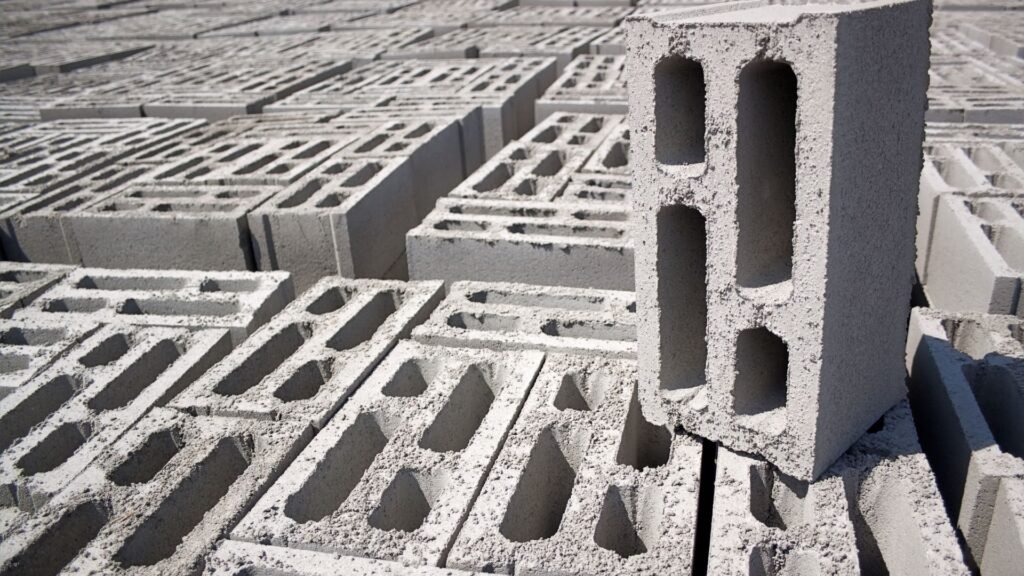Welcome to your go-to guide on concrete blocks in NZ, whether you’re planning a small DIY project or a full-scale build, understanding your material options is key. Concrete blocks are a popular choice across New Zealand for their strength, durability, and low maintenance. In this post, you’ll learn what makes them a smart option, where they’re commonly used, how they compare to other materials, and what to consider before buying. We’ll also cover pricing, local suppliers, and care tips to help you make confident decisions from start to finish.
Concrete blocks in NZ are durable, low-maintenance building materials commonly used for foundations, retaining walls, and outdoor landscaping. They offer strength, weather resistance, and affordability, making them a reliable choice for residential and commercial construction across New Zealand.
Table of Contents
What Are Concrete Blocks?
Concrete blocks, also known as concrete masonry units, are pre-formed rectangular building blocks made from a mixture of cement, water, and aggregates such as sand or gravel. They are widely used in both residential and commercial construction throughout New Zealand. These blocks are known for their strength, durability, and versatility, making them a go-to choice for everything from foundation walls to landscaping projects.
In simple terms, a concrete block is a strong, solid piece of material that’s used to build walls, fences, or other structures. Unlike bricks, which are usually smaller and made from clay, concrete blocks are larger and made to handle heavier loads. Their size helps speed up the construction process because fewer blocks are needed to cover a given area.
There are several types of concrete blocks used across New Zealand, each serving a different purpose. Hollow concrete blocks are the most common. They contain empty spaces that reduce weight and make it easier to insert steel reinforcement or run utilities through the wall. These blocks are ideal for load-bearing walls and are often used in both residential and commercial settings. Solid concrete blocks, on the other hand, are heavier and stronger. They’re best suited for high-load areas or where extra stability is needed, such as retaining walls or building foundations. Specialty blocks include options like split-face blocks, decorative blocks, and corner units. These are used for specific design goals or structural needs and are often seen in landscaping or architectural features.
In terms of size, the standard concrete block used in New Zealand typically measures 390 mm in length, 190 mm in height, and can vary in thickness from 90 mm to 190 mm depending on the project requirements. Shapes also vary to include stretcher blocks (used in the middle of walls), corner blocks, pillar blocks, and lintel blocks. This variety allows for flexibility when designing or building custom structures.
Understanding the different types of concrete blocks NZ homeowners and builders have access to can help you choose the right material for your project. Whether you’re building a garden wall or a multi-unit structure, knowing the difference between block types ensures your structure is strong, cost-effective, and built to last.
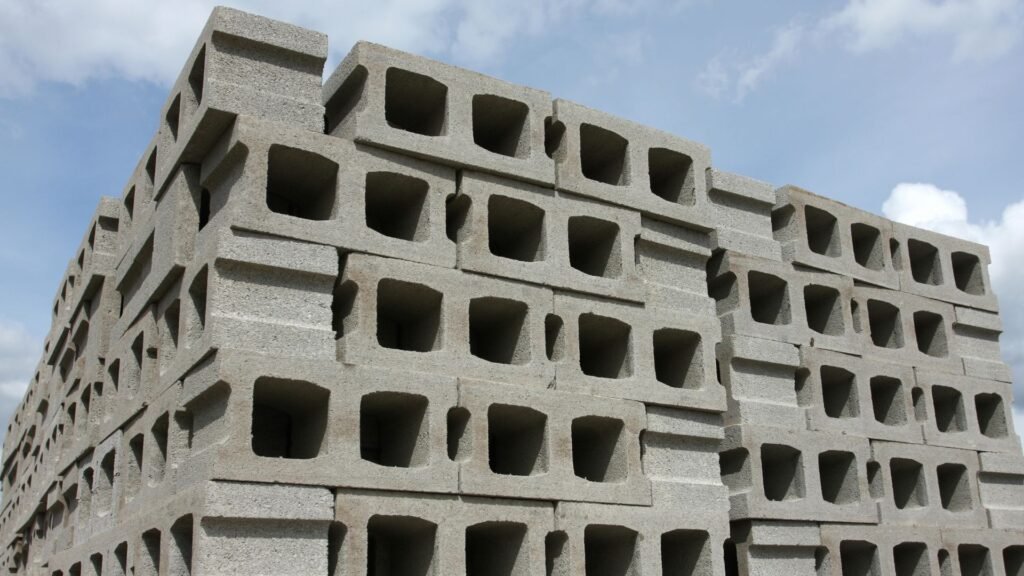
Why Concrete Blocks Are Popular In NZ
Concrete blocks have become a go-to building material across New Zealand homes and buildings, and it’s easy to see why. They offer a mix of durability, safety, and practicality that fits both the climate and construction demands in the country.
- Weather Resistance In New Zealand’s Wet Climate
New Zealand experiences a wide range of weather conditions, from heavy rain in the West Coast to damp winters in Auckland and Wellington. Concrete blocks are naturally resistant to moisture, which makes them a reliable choice in areas prone to rain, humidity, and temperature changes. Unlike timber, they don’t warp, rot, or attract mold, which means fewer weather-related issues over time. For NZ homeowners and builders looking for long-term reliability, this is a major benefit. - Fire Resistance For Safer Builds
Fire safety is a growing concern, especially in rural or high-risk areas of New Zealand. Concrete blocks are non-combustible, meaning they don’t catch fire or contribute to flame spread. When used in walls and structural components, they help create fire-rated zones that can slow down the spread of fire between rooms or buildings. This makes them a strong choice for both residential and commercial New Zealand construction, where safety is a top priority. - Cost-Efficiency Over Time
While concrete blocks may have a slightly higher upfront cost than some timber or lightweight options, they pay off in the long run. Their durability means fewer repairs, fewer replacements, and lower long-term maintenance costs. This makes them a smart financial choice for long-term building investments, especially in larger construction projects across New Zealand where lifespan and structural integrity are key factors. - Low Maintenance Needs For NZ Property Owners
Concrete blocks require minimal upkeep compared to other materials. They don’t need to be repainted often, aren’t prone to pest damage, and hold up well against NZ’s coastal winds, rainfall, and seasonal shifts. For property owners, this means less ongoing maintenance and fewer unexpected repair bills. In residential developments or rural builds, this hands-off appeal makes them even more attractive.
Concrete blocks are widely used in New Zealand construction because they meet the country’s practical building needs while offering long-term value. From urban homes to farm buildings and retaining walls, their resilience and performance make them a clear winner for Kiwi builders and homeowners alike.
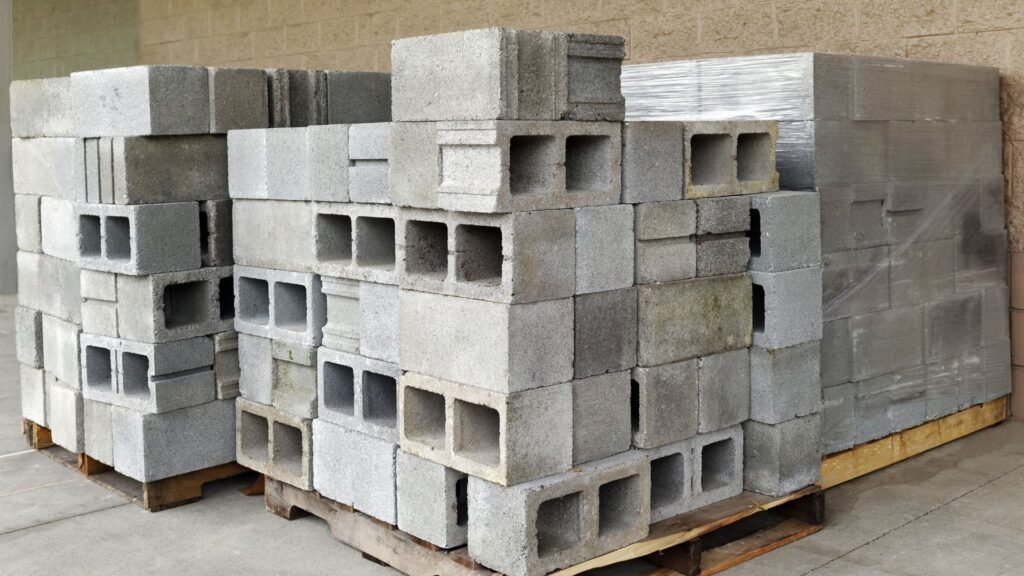
Common Uses For Concrete Blocks In NZ
Concrete blocks are a go-to material across New Zealand for a wide range of building applications. Their durability, ease of use, and availability make them a popular choice for both residential and commercial construction. Below are the most common ways Kiwis use concrete blocks in everyday projects, each with practical examples to show how they fit into real builds around the country.
Retaining Walls
Retaining walls are one of the most widespread uses of concrete blocks in New Zealand. They help manage soil levels on sloped land, prevent erosion, and create flat areas for gardens, driveways, or patios. Hollow concrete blocks are often used because they can be reinforced with steel and filled with concrete, making them strong enough to hold back large amounts of soil.
Example: A homeowner in Wellington built a 1.2-meter-high retaining wall to level out their sloping backyard. They used Firth concrete blocks, filled them with concrete for extra strength, and added a timber cap to match their fencing. The result was a stable, weather-resistant structure that added both form and function to their property.
Foundations And Basements
Concrete blocks are commonly used for building foundations and basement walls, especially in areas prone to moisture or where structural integrity is critical. Their high load-bearing capacity and resistance to termites and rot make them ideal for these below-ground applications.
Example: A builder in Christchurch used reinforced concrete block foundations for a new home in an earthquake-prone zone. The blocks were laid with steel reinforcements and core-filled to meet New Zealand Building Code standards. This method gave the structure a strong base and added resilience against seismic movement.
Garden Edging Or Outdoor Landscaping
In outdoor landscaping, concrete blocks are often used for low walls, raised garden beds, and pathways. They’re easy to stack, offer a clean finish, and can handle weather changes better than untreated timber or plastic edging.
Example: In Tauranga, a couple transformed their front yard by installing concrete block edging around their flower beds. They chose split-faced blocks for a textured look, and the final result gave their garden a neat, professional finish that required little upkeep.
Commercial Walls
Concrete blocks are widely used in commercial settings, such as warehouses, office buildings, and industrial units. They offer excellent sound insulation, fire resistance, and security, making them ideal for high-traffic or high-risk areas.
Example: A small logistics company in Hamilton used concrete blocks to build the outer walls of their warehouse. The construction team chose full-height, solid-core blocks for added durability. The design also allowed easy future expansions, thanks to the modular block layout.
Each of these uses highlights how versatile concrete blocks are in the NZ market. Whether it’s for structural support, landscaping, or commercial development, these blocks provide a reliable solution that meets both budget and building requirements. When chosen and installed correctly, concrete blocks deliver long-term value and performance in nearly any project.
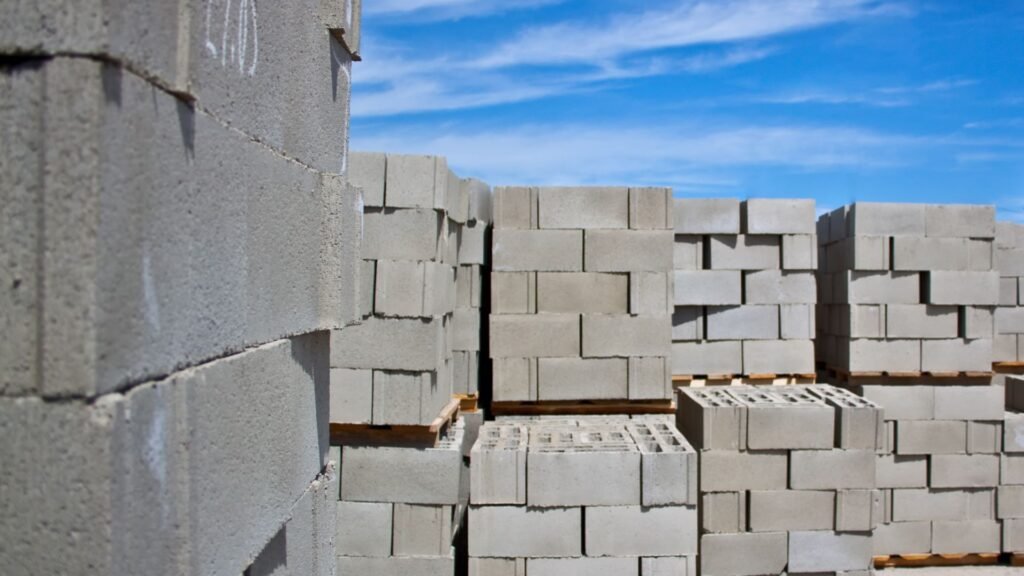
Concrete Blocks Vs Other Materials
When planning a construction project in New Zealand, choosing the right material can make a big difference in cost, strength, and how long your structure lasts. Concrete blocks are a top pick for many Kiwi homeowners and builders, but how do they compare to other common building materials in NZ like timber framing, brick, and precast concrete panels? Here’s a breakdown to help you decide what suits your needs best.
Timber Framing
Timber framing has long been a staple in New Zealand homes, especially for residential builds. It’s lightweight, easy to work with, and widely available. But when you compare it to concrete blocks, there are some key differences.
- Durability: Timber is more prone to moisture damage, pests, and rot, especially in damp regions. Concrete blocks, on the other hand, are strong, weather-resistant, and require less upkeep over time.
- Cost: Timber may have a lower upfront cost, especially for small builds. But long-term maintenance like re-painting, treating for termites, or repairing water damage can add up. Concrete blocks often come with higher initial costs but fewer long-term issues.
- Lifespan: A well-maintained timber frame can last decades, but concrete block structures typically last longer with minimal maintenance.
- Installation Time: Timber is quicker to frame and build with, which is ideal for smaller jobs or when labour is limited. Concrete blocks take more time to lay and cure, especially for structural applications, but offer more stability once in place.
Brick
Bricks are another traditional option in NZ construction. They’re known for their classic appearance and solid feel, but comparing brick to concrete blocks reveals clear differences.
- Durability: Bricks are strong and fire-resistant, but they can chip or crack under stress. Concrete blocks are larger and more impact-resistant, making them suitable for retaining walls and load-bearing projects.
- Cost: Brickwork is often more expensive due to the smaller size of each unit and the higher labour costs. In contrast, concrete blocks cover more area faster, which can reduce labour time and expense. If you’re comparing block vs brick NZ, concrete blocks often win in cost-efficiency.
- Lifespan: Both materials offer impressive longevity, but concrete blocks can handle more structural load, which adds to their appeal for builders focused on strength.
- Installation Time: Bricklaying is labour-intensive and slower. Concrete blocks are quicker to install because of their size, which helps keep large-scale projects on schedule.
Precast Concrete Panels
Precast panels are pre-made concrete walls transported to the site. They’re popular for commercial and large residential buildings across New Zealand.
- Durability: Both precast panels and concrete blocks offer excellent strength and resistance. Precast panels come with a smooth finish and strong build, while blocks are more flexible for smaller or complex designs.
- Cost: Precast panels often involve higher transportation and crane setup costs. Concrete blocks are more cost-effective for small to medium-sized projects, especially where access or lifting equipment is limited.
- Lifespan: Both materials are long-lasting. The real difference lies in how they’re used and maintained. Precast panels provide consistent quality but are less forgiving if cracks or damage occur after installation.
- Installation Time: Precast panels are faster to erect once on-site but require more planning and upfront logistics. Concrete blocks take longer to install but allow more control and flexibility during construction.
Choosing The Right Material
There’s no one-size-fits-all answer when selecting between timber, brick, precast concrete panels, and concrete blocks. It depends on the type of project, your budget, and the look you’re going for. For many builders and homeowners in New Zealand, concrete blocks stand out because of their solid mix of strength, longevity, and low maintenance.
If you’re weighing your options for building materials NZ-wide, comparing block vs brick NZ or other materials should start with understanding your goals. Are you after quick installation, minimal maintenance, or long-term durability? Concrete blocks often strike the right balance for both residential and commercial builds.
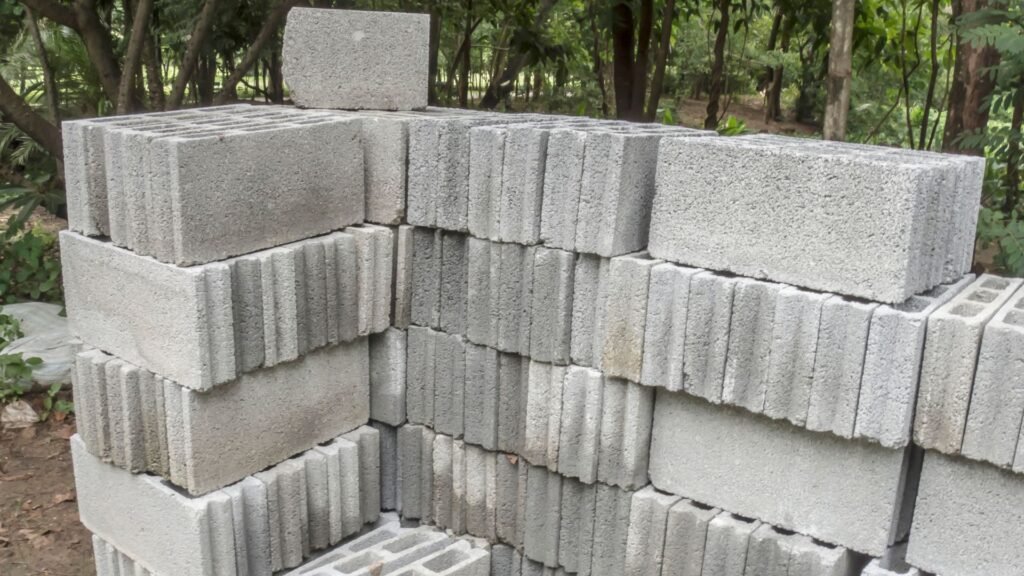
Cost Of Concrete Blocks In NZ
Concrete blocks are known for being a cost-effective building material, but prices can vary depending on several key factors. In New Zealand, the average price of a standard concrete block ranges from $2.50 to $7.00 per block, depending on the size, type, and supplier. For larger construction projects, some suppliers may also quote costs per square metre (m²), especially when estimating for walls or foundations. On average, this could range between $40 to $90 per m², including materials but excluding labour.
The total cost of using concrete blocks goes beyond just the price tag. Several factors can influence how much you’ll end up spending. Size and type are the first considerations. Hollow blocks are usually cheaper than solid ones, and specialty blocks for design or reinforcement tend to cost more. Suppliers also play a major role. Large retailers may offer convenience and wider availability, while smaller, local suppliers of concrete blocks NZ often provide more competitive pricing, especially if you’re ordering in bulk.
Delivery fees are another cost driver. Concrete blocks are heavy, so transporting them from the supplier to your site can add significantly to the final bill. If you’re buying from a supplier in another region, expect to pay more for freight. This is why many builders and homeowners look for where to buy concrete blocks in NZ from nearby towns or cities. Choosing a local supplier can reduce both cost and delivery time.
Lastly, quantity matters. Buying in bulk usually unlocks discounts. Whether you’re building a retaining wall or laying the foundation for a home, ordering a large quantity upfront is often more affordable than placing smaller, repeated orders. Always ask your supplier if they offer bulk pricing, and compare multiple quotes before making a decision.
Overall, the cost of concrete blocks in NZ remains accessible for most building projects. By choosing the right block size, working with a local supplier, and planning ahead, you can manage costs efficiently without compromising on quality or durability.
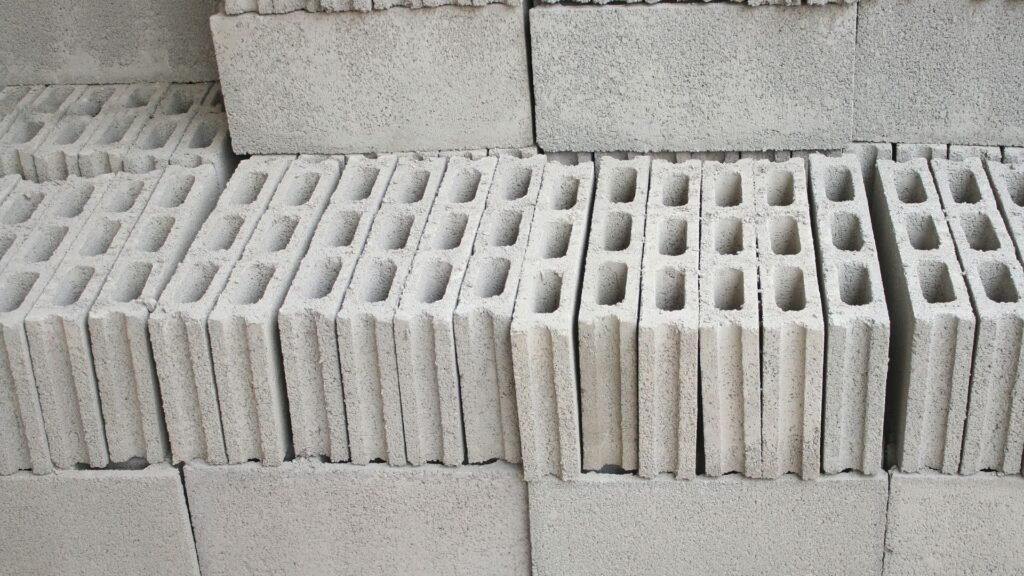
How To Choose The Right Concrete Block
Choosing the right concrete block isn’t just about picking what’s available at your local supplier. Each project has different needs based on size, weight, strength, and design. Whether you’re building a retaining wall, a garden edge, or a structural foundation, selecting the right block type will affect the strength, cost, and longevity of your build. Below is a checklist to help you decide what to look for before buying.
Project Size And Type
Start by thinking about the scale of your project. Are you building a small garden bed or a large retaining wall? For landscaping or decorative walls, lighter blocks or specialty shapes may be enough. For structural work like foundations or load-bearing walls, you’ll need heavier, high-strength options. Match the block type to the function, don’t overbuild for a small task or underbuild for a large one.
Weight And Dimensions
Concrete blocks come in a range of weights and sizes. Standard blocks are usually 390mm x 190mm x 190mm, but others are designed for faster installation or more complex layouts. Heavier blocks offer more durability and stability, but they’re harder to handle and may require machinery for transport or placement. Measure your area and calculate how many blocks you’ll need to avoid over-ordering.
Strength Ratings (MPa)
In New Zealand, concrete blocks are rated by their compressive strength, measured in megapascals (MPa). The higher the MPa, the stronger the block. For basic landscaping, 10–15 MPa is often enough. For structural applications or areas with strict building codes, you may need blocks rated at 20 MPa or more. Always check the specifications and make sure the block meets your local council requirements.
Design And Style Preferences
Not all concrete blocks are grey and plain. Some come with split face textures, colored finishes, or decorative patterns to suit your design preferences. If the block will remain visible, choose one that matches your overall aesthetic. You can also choose blocks that are easy to plaster or paint if you want a custom finish later.
Quick Checklist Before You Buy:
- What are you building? (Wall, edging, foundation, etc.)
- How much weight will it support?
- Do you know the block’s size and how many you’ll need?
- Does it meet the MPa rating required for your build?
- Will the block be visible, and if so, does it match your style?
Taking the time to answer these questions before heading to a supplier can save money, avoid mistakes, and help you choose blocks that are fit for purpose. Always ask your supplier for product specs and compare a few options before making your final decision.
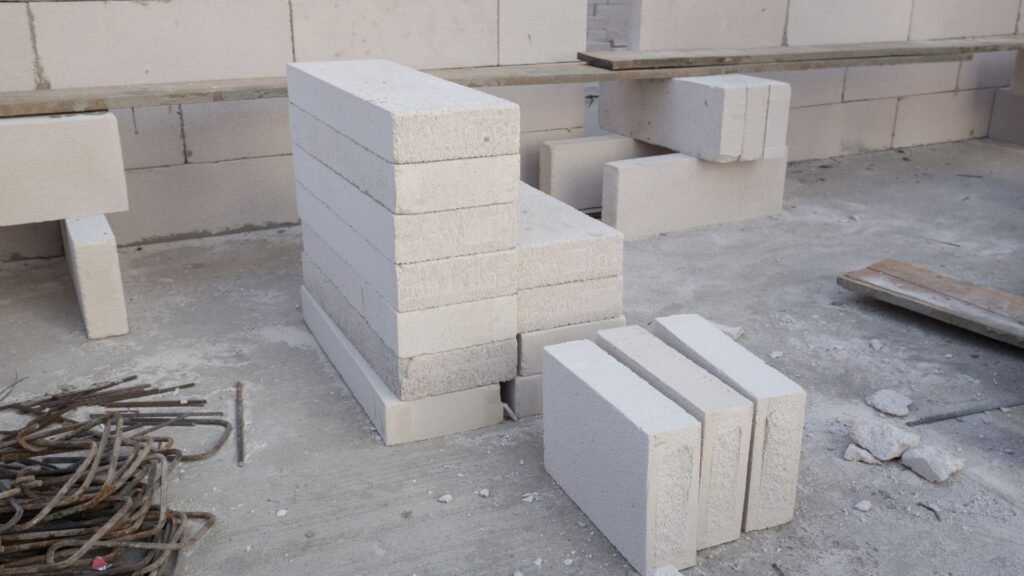
DIY Or Hire A Professional?
When starting a project with concrete blocks in New Zealand, one of the first decisions you’ll need to make is whether to go the DIY route or hire a licensed professional. The right choice depends on the size and complexity of your project, your level of experience, and how much time you’re willing to commit.
For small-scale jobs like garden edging, low boundary walls, or decorative block features, DIY can be a great option. These projects don’t usually require permits or structural reinforcement, and most people with basic tools and a bit of research can manage the job themselves. If you’re confident with measuring, leveling, and mixing mortar, you’ll likely enjoy the hands-on nature of a small concrete block build. Just make sure to follow the basic rules, keep things level, allow for drainage, and don’t cut corners on base preparation.
On the other hand, larger structures like retaining walls, home foundations, or any load-bearing walls should be handled by a licensed block layer or builder. These types of projects need to meet local council regulations and must be structurally sound to avoid safety risks. Hiring a professional also ensures compliance with the New Zealand Building Code, which is especially important in areas prone to earthquakes or flooding. Poorly built block structures can cause long-term drainage issues, shifting, or cracking, which usually leads to expensive repairs down the line.
If you decide to hire a tradesperson, always ask for examples of past work and make sure they’re licensed under the Licensed Building Practitioners (LBP) scheme. Don’t hesitate to get multiple quotes, and take time to read online reviews from other local homeowners. A reliable contractor will offer a clear timeline, accurate pricing, and guidance on materials. Ask whether they source blocks locally and whether waterproofing, backfill, or finishing is included in the scope of work.
Here’s a practical tip from a recent build I was involved in: If you’re not sure how to handle drainage behind a retaining wall, that’s your sign to call in a pro. We once helped a homeowner who thought gravel alone would be enough. Without proper drainage piping, water pressure built up, and the wall started leaning within six months. Fixing it cost more than doing it right the first time. If the structure affects stability, water flow, or long-term safety, don’t gamble on DIY. Let an expert handle it.
By thinking through the project scope, you’ll know whether to roll up your sleeves or call in reinforcements. Either way, good planning and the right approach will help your concrete block project in NZ stand strong for years.
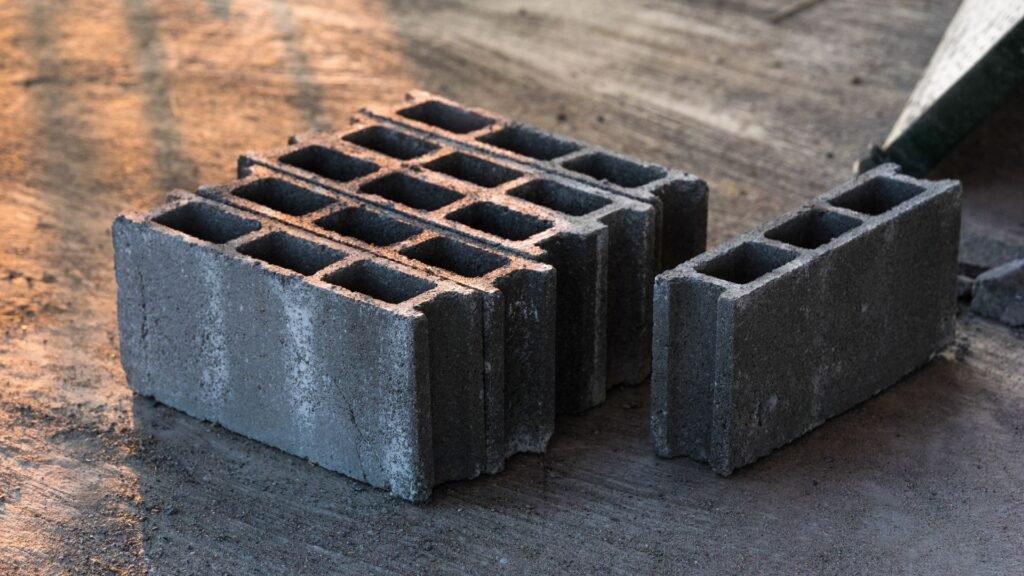
Where To Buy Concrete Blocks In NZ
If you’re planning a project that involves concrete blocks, finding a reliable supplier is just as important as choosing the right product. Fortunately, concrete blocks are widely available throughout New Zealand, and you have several buying options depending on your needs, location, and budget.
Local Hardware Stores
For everyday home improvement or small-scale construction jobs, large hardware retailers like Mitre 10 and Bunnings Warehouse are solid starting points. These stores stock a variety of standard concrete blocks that are perfect for garden walls, edging, raised planters, or minor structural work. Their staff can usually offer basic advice, and many locations provide delivery options if you’re buying in bulk. You can check local availability or browse products on their websites:
- Mitre 10
- Bunnings NZ
These stores are also ideal for picking up related materials like mortar, reinforcing bars, waterproofing sealants, and safety gear.
Specialist Concrete Block Suppliers
If you’re working on a larger build or need custom block sizes, colors, or finishes, consider ordering from a specialist supplier. Companies like Firth, Humes, and PlaceMakers provide a wide range of concrete blocks, including structural, architectural, and retaining wall systems. These suppliers often offer engineered products designed for compliance with New Zealand Building Code standards, especially in seismic or high-load areas.
- Firth Concrete – Offers structural and architectural concrete masonry, including designer finishes.
- Humes NZ – Known for infrastructure-grade concrete products used in civil and commercial projects.
- PlaceMakers – Supplies residential and commercial building materials, including a wide selection of blocks and accessories.
Specialist suppliers usually cater to both tradies and DIY customers. Some provide expert advice, quantity takeoffs, and even delivery coordination for large jobs.
Online Supplier Directories
If you’re unsure where to start or want to compare prices and options, online directories and marketplaces can help. Sites like Builderscrack, Archipro, or Yellow NZ list suppliers across regions and allow you to filter by product type or service area.
These platforms can help you discover local businesses that may not have large online stores but still offer great pricing and reliable service.
Choosing The Right Supplier
When choosing where to buy concrete blocks, consider your project size, delivery needs, and block specifications. Local hardware stores are convenient for quick jobs, while specialist suppliers offer depth and variety for more complex projects. Don’t hesitate to ask for samples, tech specs, or quotes, especially if your build involves council inspections or engineered designs.
No matter where you’re based in New Zealand, there’s a supplier ready to help you get the right concrete blocks for your job. Make sure to compare prices, check reviews, and confirm product availability before committing to a purchase.
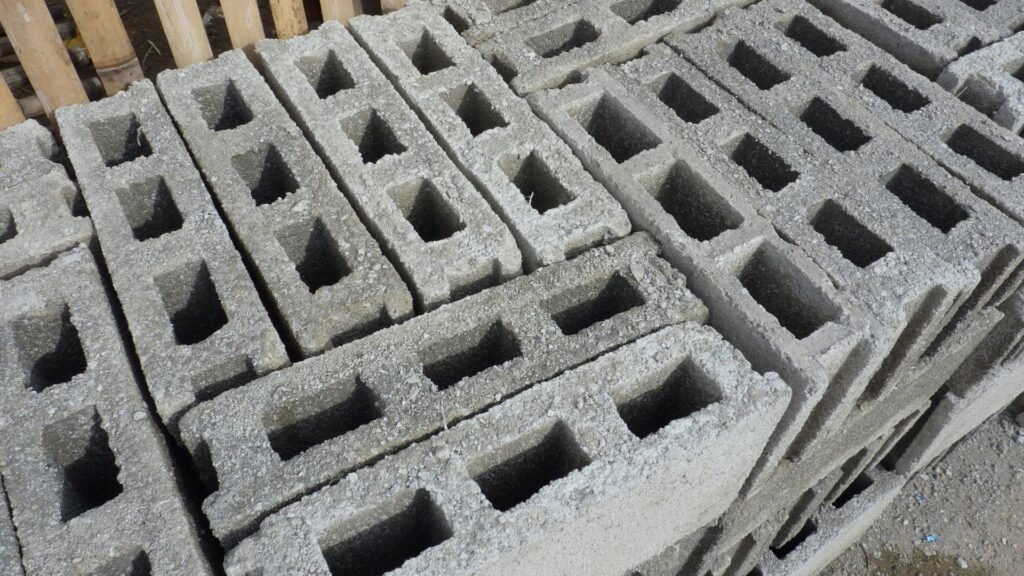
Caring For Concrete Block Structures
Concrete blocks are known for their strength and durability, but like any material, they perform best with proper care. Whether you’ve used them for a garden wall, home foundation, or retaining wall, basic upkeep can help your structure last for decades. This section covers practical ways to protect and maintain concrete blocks in New Zealand’s climate.
Sealing, Waterproofing, Or Painting
Concrete is a porous material, which means it can absorb moisture over time. This can lead to internal damage or surface staining, especially in wet or coastal regions of NZ. To prevent this, many builders recommend applying a concrete sealant once the structure is fully cured. Sealers block water from entering the surface while still allowing the material to breathe. If your blocks are part of an outdoor wall or foundation, waterproofing becomes even more important. Products like masonry waterproofer or bitumen-based coatings can protect below-ground blocks from soil moisture. For aesthetics or extra protection, you can also paint your concrete blocks using breathable masonry paint. Make sure the paint is rated for outdoor use and can handle NZ’s changing weather conditions. Preparation is key, clean the surface, fix any chips, and apply primer before painting.
Dealing With Moss And Mildew In Damp Areas
New Zealand’s humidity can lead to moss and mildew growing on concrete block surfaces, especially in shaded or poorly ventilated areas. While it may seem harmless at first, moss can trap moisture and lead to long-term damage or slippery surfaces. The best way to control this is through regular cleaning. A mix of water and mild detergent or vinegar can help remove surface growth. For more stubborn areas, consider using a concrete-safe moss and mould killer. Keep the space dry by trimming overhanging plants or improving air flow. Avoid using high-pressure washers too often, as they can erode the surface or loosen mortar joints.
Preventing Cracks Or Settling
While concrete blocks are structurally stable, cracks can develop over time from shifting soil, poor drainage, or temperature changes. To prevent this, make sure your structure was built with proper foundations and drainage systems in place. If you notice small surface cracks, seal them early with a concrete filler to keep out water and prevent expansion. Check for signs of settling, like uneven walls or large cracks, and address them quickly with a professional. Adding gravel or drainage pipes behind retaining walls can reduce pressure and water buildup, which often causes cracks. Regular inspections and small repairs go a long way in preserving the integrity of your concrete block structure.
Taking the time to protect and maintain your concrete blocks not only keeps them looking good but also extends their lifespan. With the right care, your walls or foundations will remain solid and secure for years to come.
Ready to start your next building project? Explore quality concrete blocks and expert advice tailored for New Zealand builds. Visit us to get started.
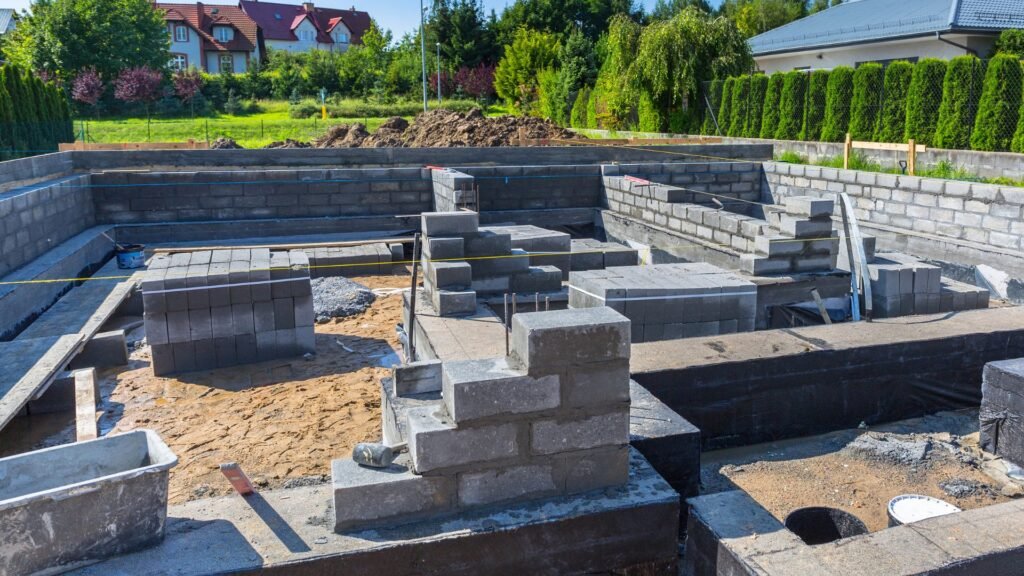
FAQs: About Concrete Blocks In NZ
What are concrete blocks used for in NZ?
Concrete blocks are commonly used for building foundations, retaining walls, fences, garden edging, and structural walls in both residential and commercial construction.
Are concrete blocks suitable for New Zealand’s climate?
Yes. Concrete blocks are weather-resistant and handle NZ’s wet and coastal conditions well. They also offer thermal mass and fire resistance.
What types of concrete blocks are available in NZ?
You’ll find hollow blocks, solid blocks, decorative blocks, and interlocking blocks. Each type suits different structural or design needs.
How much do concrete blocks cost in NZ?
Prices typically range from $2.50 to $7.00 per block depending on size, type, and supplier. Bulk orders and local sourcing can reduce costs.
Can I build with concrete blocks myself, or should I hire a pro?
Small projects like garden beds or low walls can be DIY-friendly. Larger structures, like retaining walls or foundations, should be handled by licensed builders.
Where can I buy concrete blocks in New Zealand?
You can buy them at major hardware stores like Bunnings and Mitre 10, or from suppliers such as Firth, PlaceMakers, and Humes.
How long do concrete block structures last?
With proper installation and maintenance, concrete blocks can last over 50 years. They’re highly durable and resistant to pests, moisture, and fire.
Can I paint or plaster over concrete blocks?
Yes. You can paint, render, or plaster concrete block surfaces for better appearance or extra protection. Make sure to use appropriate materials.
Are concrete blocks earthquake-safe in NZ?
Yes, if built to code. Concrete blocks must be reinforced and comply with NZ building standards for seismic safety, especially in active zones.
Do I need council approval to build with concrete blocks?
For large or structural projects, yes—council consent is often required. Always check with your local council before starting any major build.
Conclusion
Concrete blocks continue to be a trusted choice for builders and homeowners across New Zealand due to their strength, weather resistance, and long-lasting value. Whether you’re planning a garden wall, a new foundation, or a structural addition, concrete blocks offer durability, low maintenance, and design flexibility. Their wide availability, range of types, and affordability make them a practical option for many projects. If you’re comparing materials for your next build or just starting to explore your options, concrete blocks are worth serious consideration. Take the next step by reviewing specifications, checking prices, or contacting local suppliers who can guide you based on your needs.

